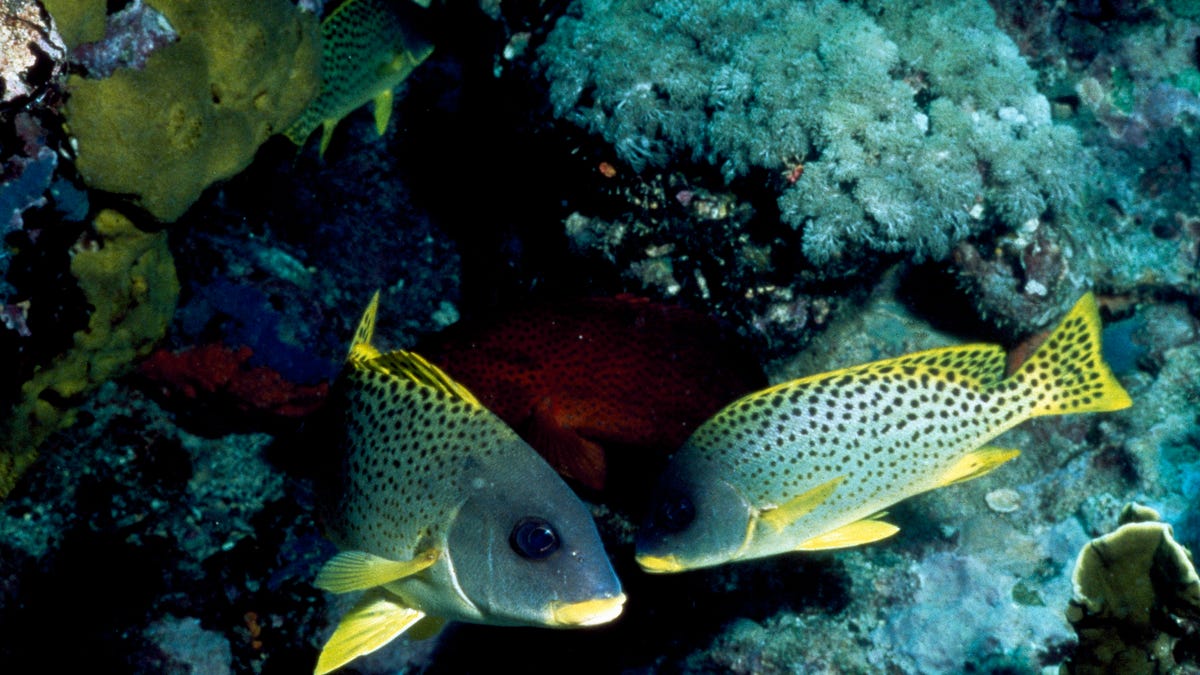Great Barrier Reef's latest problem is that it's too quiet
The latest threat to Australia's natural wonder is sound. There aren't enough fish making noise for baby fish to hear their way home.

There's great news and not-so-great news for Australia's Great Barrier Reef.
The not so-great-news is that the Australian Institute of Marine Science (AIMS) published a paper on Tuesday highlighting yet another threat to the reef: sound.
The international team of scientists from AIMS compared underwater acoustic recordings from reefs around Lizard Island in the northern Great Barrier Reef from November 2012 to November 2016. The reefs were hit by Cyclone Ita in 2014, Cyclone Nathan in 2015 and the mass coral bleaching event of 2016, caused by climate change.
The researchers found the damage quietened the "coral reef orchestra" -- noise that's essential for baby fish to find a suitable habitat to live in. Normally they use noises such as snapping shrimp clicks, damselfish chirps and clownfish chattering.
But in the degraded ecosystem, the reef attracted 40 percent fewer baby fish compared to reefs with healthy sound.
"Reef fish disperse their young away from reefs in open water to help the larvae survive, and once they develop into juveniles, they have to find their way back to a reef," said Dr. Mark Meekan, a biologist and one of the authors in the study.
"If juvenile fish aren't hearing their way home anymore, that could be bad news for the recovery prospects of reefs.
"A reef without fish is a reef that's in trouble."
So what's the great news?
On Sunday, the federal government of Australia announced an AU$500 million ($377 million) allocation of funds into saving and protecting the reef.
The funding will be used to improve water quality, combat the coral-eating crown-of-thorns starfish and further reef restoration.
It's "the single largest funding commitment ever for reef conservation and management in Australia's history," according to Josh Frydenberg, the federal environment and energy minister.
Of that funding, AU$100 million will go into technologies that address both damage prevention and reef repair run by AIMS. In January it started the Reef Restoration and Adaptation Program, led by coral ecologist Dr. Line Bay.
"We are currently scoping the promising research and technologies already available, to identify methods that could be further developed and deployed at the scale needed to protect and restore the Reef," she wrote to CNET in an email.
"This allows us to progress the work of a collaboration of Australia's leading reef ecology, water, engineering, innovation and social science experts."
This is a huge step up from the government's previous AU$8 million ($6 million) allocation to the Great Barrier Reef Foundation. The new investment sees AU$444 million going into the independent not-for-profit that collaborates with a wide range of groups, from government to science, for the benefit of the reef.
The other AU$56 million will go to the government-run Great Barrier Reef Marine Park Authority and the Department of the Environment and Energy.
The reef sound research, titled Habitat degradation negatively affects auditory settlement behaviour of coral reef fishes, is available in the Proceedings of the National Academy of Sciences (PNAS).
CNET Magazine: Check out a sample of the stories in CNET's newsstand edition.
Rebooting the Reef: CNET dives deep into how tech can help save Australia's Great Barrier Reef.

